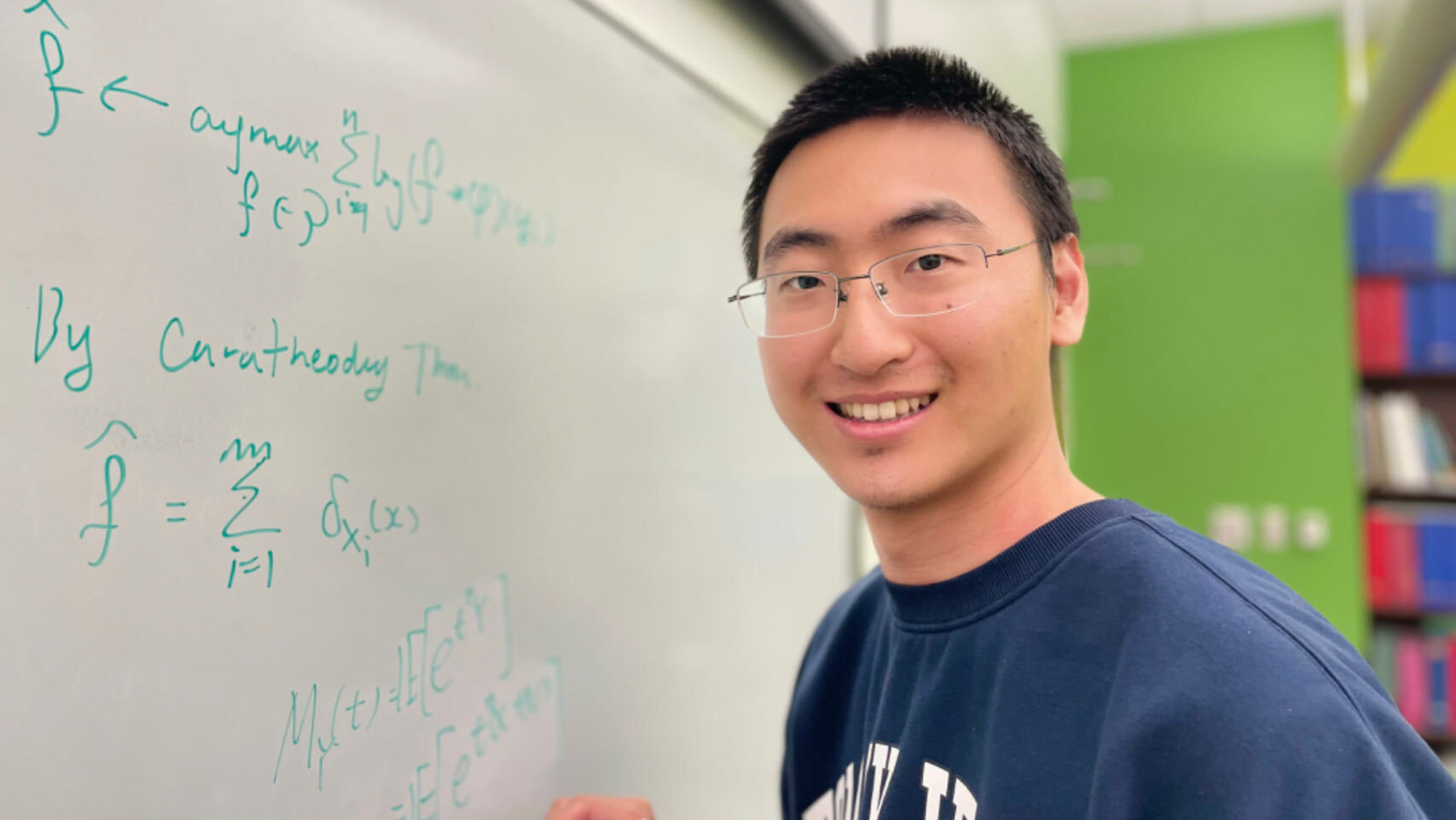
From recognizing complex patterns to making predictions about future outcomes, the applications of machine learning are constantly evolving.
Dr. Ruida Zhou, a recent electrical and computer engineering doctoral graduate, is working on designing and analyzing algorithms to solve machine learning problems using information theory. Information theory is understanding how to store, transmit, process and measure information.
One concept he’s researching is called generalization.
“Imagine you give a machine images of cats and dogs,” Zhou said. “Somehow, it can understand the concepts of cats and dogs. This is called generalization.”
Zhou is using information theory to quantify and interpret errors that occur in generalization.
Generalization error refers to the difference in how well a model performs when given new data versus training data, which is data it is already familiar with. Information-theoretic measures capture the amount of information acquired by the model from the training data, giving a reasonable generalization interpretation.
We have used information-theoretic measures to facilitate the design of a safe and robust learning agent that can make decisions such as autonomous driving.
“Interpreting generalization is one example of what information-theoretic measures are capable of doing,” Zhou said. “We have used information-theoretic measures to facilitate the design of a safe and robust learning agent that can make decisions such as autonomous driving.”
Zhou took this research a step further to study an aspect of machine learning called reinforcement learning by collaborating with professors from the Department of Electrical and Computer Engineering, which include his advisor, Dr. Chao Tian, along with Dr. Dileep Kalathil and Dr. P. R. Kumar.
Reinforcement learning is when a computer program learns to make decisions through trial and error. The program receives feedback in the form of rewards and punishments, adjusting its behavior over time.
Zhou received the 2024 Association of Former Students Distinguished Graduate Excellence in Research Doctoral Award for his work. This accolade recognizes exceptional contributions to research and dedication to innovation.
“We’re witnessing the rapid development of artificial intelligence technologies,” Zhou said. “This is an exciting time for conducting machine-learning research as an information theorist.”